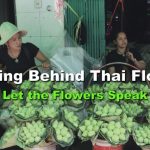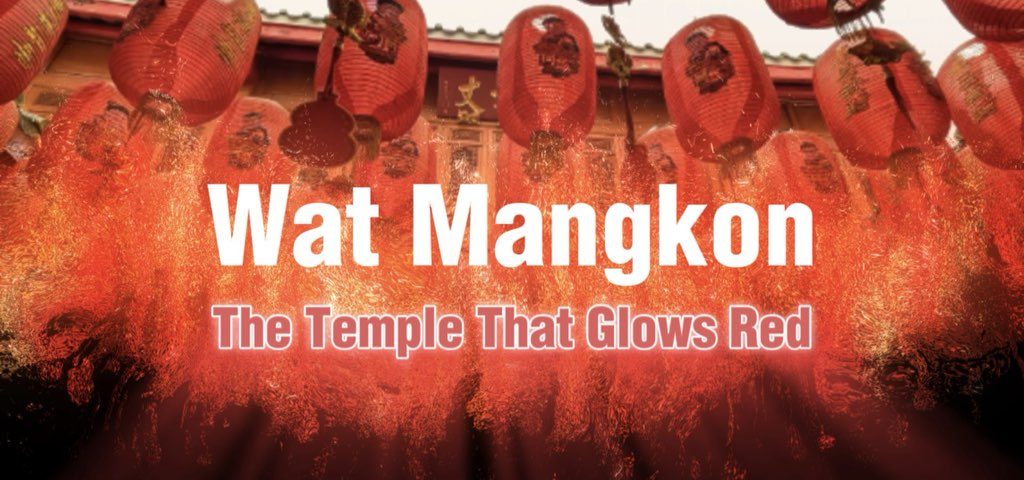
Thai Culture – Buddha Images
October 13, 2017
Flowers in Thai Culture — Meaning and Symbolism
July 20, 2025Wat Mangkon: Dragon Temple in Bangkok’s Chinatown

Chinatown in Bangkok is a sensory explosion — vibrant, noisy, and always in motion. One of the city’s oldest neighbourhoods, it blends heritage with the hum of modern street life.
But nestled deep in the heart of this high-energy district is a temple that many people walk past without noticing.
Its name is Wat Mangkon Kamalawat, though locals often say Wat Mangkon, and for us it’s a favourite retreat from the bustle. The temple, which dates back to the early 20th century, was constructed by the Chinese-Thai community and has served as a spiritual and cultural hub ever since.
🐉 What’s Behind the Name?
The word “Mangkon” means “dragon” in Thai, a creature associated with strength, wisdom, and protection in Chinese culture. True to its name, this temple is full of dragon symbolism etched into wood, draped over incense pots, and peeking out from rooftops. These mythical guardians are believed to protect the space and those who enter it.
🔴 The Glow of Red Lanterns
Whenever we visit, we’re greeted by a canopy of red lanterns swaying overhead. In Chinese tradition, red symbolises luck and happiness, and during festivals like Lunar New Year or the Vegetarian Festival, the entire temple lights up in a warm, magical glow.
You might see someone scribbling a wish on a red slip of paper, tying it carefully below the lanterns. These little rituals keep the space alive and deeply connected to the community.

🏯 A Temple That’s Alive
Wat Mangkon isn’t a relic; it’s a working temple full of movement and quiet devotion. Locals come to pray, light incense, place fruit offerings, and sit in stillness.
It brings together both Buddhist and Taoist traditions, wrapped in Chinese-inspired architecture such as curved rooftops, red columns, hand-painted signs, and golden statues that catch the light just right. The contrast is striking: step off a busy Bangkok street, and suddenly you’re somewhere deeply peaceful. The intricate carvings on the wooden beams, the delicate brushstrokes on the signs, and the way the light plays on the golden statues all add to the temple’s unique charm.

🕰️ When to Visit
We recommend visiting early in the day. The temple is calm, the light is soft, and you’ll often have it nearly to yourself. If you’re there during a major celebration, it’s a different experience that is more energetic and more crowded, but just as beautiful.
📍 A Peaceful Spot You Could Miss
Wat Mangkon is a couple of minutes walk from Wat Mangkon MRT (Exit 3). Follow this link. Because it’s not immediately visible from the street, many people walk right past it, which makes discovering it feel even more special.
🌟 More Than a Landmark
For Bangkok’s Chinese-Thai community, this temple holds a deeply personal significance. It’s a space for reflection, connection, and honouring the past. Visiting offers a rare glimpse into the everyday spiritual life of the city, one that is often overlooked on postcards.
🚴 Want to Visit by Bike?
On our Siam Boran Culture Tour, we can include Wat Mangkon as a stop if you book a private tour or request a custom route. It’s a chance to pause, breathe, and experience another layer of Bangkok’s cultural story.
Whether we arrive in the morning or glide through in the golden hour, Wat Mangkon always leaves an impression. We’d love to hear about your experiences or answer any questions you might have about visiting the temple.
